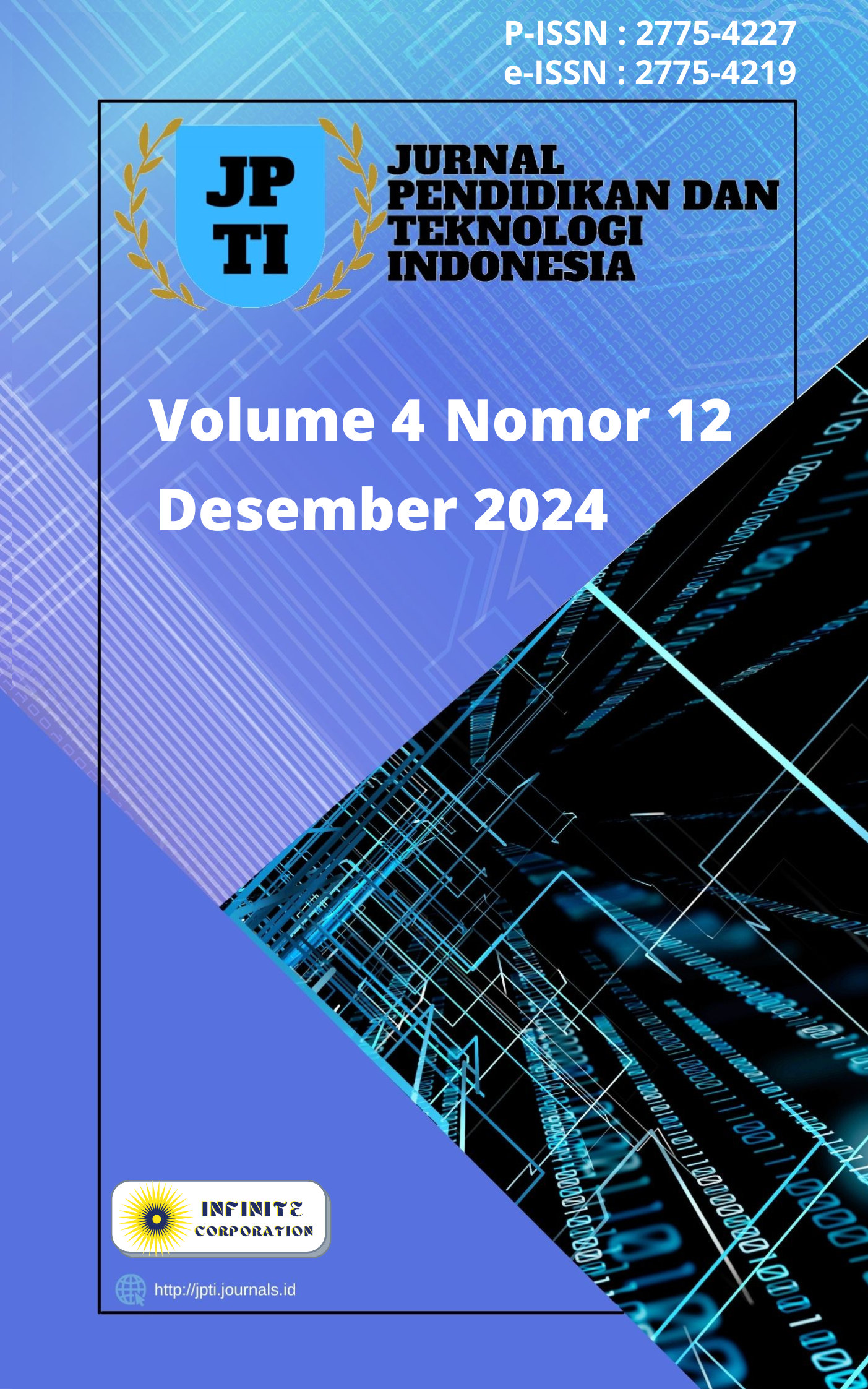Analisis Relevansi Kompetensi Alumni dengan Pekerjaan di Pendidikan Tinggi Menggunakan Pendekatan PCA dan Clustering
DOI:
https://doi.org/10.52436/1.jpti.515Kata Kunci:
Clustering K-Means, Kompetensi Alumni, Principal Component Analysis (PCA), Relevansi Pendidikan, Silhouette ScoreAbstrak
Penelitian ini bertujuan untuk menganalisis relevansi kompetensi alumni dengan kebutuhan dunia kerja di sektor pendidikan tinggi melalui penerapan Principal Component Analysis (PCA) dan K-Means Clustering. PCA digunakan untuk mereduksi kompleksitas data kompetensi alumni sehingga pola keterampilan interpersonal (soft skills) dan teknis dapat divisualisasikan secara lebih sederhana. Hasil clustering menunjukkan adanya tiga kelompok utama alumni berdasarkan profil kompetensi, yaitu kelompok dengan dominasi soft skills, kelompok dengan dominasi keterampilan teknis, dan kelompok dengan keseimbangan kedua keterampilan. Temuan ini menegaskan bahwa keterampilan interpersonal memiliki segmentasi yang lebih jelas dibandingkan keterampilan teknis, yang masih menunjukkan tumpang tindih antar cluster. Penelitian ini memberikan implikasi penting bagi institusi pendidikan tinggi untuk menyesuaikan kurikulum dengan kebutuhan pasar kerja, memperkuat pengembangan soft skills dan keterampilan teknis guna meningkatkan daya saing lulusan. Dengan pendekatan ini, institusi dapat lebih responsif terhadap tuntutan dunia kerja yang dinamis serta mendukung perumusan kebijakan pendidikan yang lebih efektif.
Unduhan
Referensi
K. Pukelis and N. Pilei?ikien?, "Matching of developed generic competences of graduates in higher education with labour market needs," Quality in Higher Education, vol. 9, no. 6, pp. 140–167, 2012.
J. A. P. Montales, H. P. Garcia, and D. M. T. Saniel, "Correlational Analysis between Competencies Acquired by Business Education Graduates and Required by the Financial Industry," Liceo Journal of Higher Education Research, vol. 16, no. 2, 2020.
L. M. N. Rivera et al., "Relationship between higher education and the demands of the labor market," Russian Law Journal, vol. 11, no. 7, pp. 89-102, 2023.
U. Teichler, "New perspectives of the relationships between higher education and employment," Tertiary Education and Management, vol. 6, no. 1, pp. 79–92, 2000.
E. Sigat and O. Polyanok, "The Relevance of Competencies of Graduates of Engineering Professions in the Labour Market," Management of the Personnel and Intellectual Resources in Russia, vol. 7, no. 2, pp. 45–52, 2018.
N. Ferguson, "Achieving Synergy in the Industry-Academia Relationship," Computer, vol. 44, no. 1, pp. 90–92, 2011.
M. Tomlinson, "‘The degree is not enough’: students’ perceptions of the role of higher education credentials for graduate work and employability," British Journal of Sociology of Education, vol. 29, no. 1, pp. 49–61, 2008.
G. Mason, "High Skills Utilisation Under Mass Higher Education: Graduate employment in service industries in Britain," Journal of Education and Work, vol. 15, no. 4, pp. 427–456, 2002.
L. Peng, S. Zhang, and J. Gu, "Evaluating the competency mismatch between Master of Engineering graduates and industry needs in China," Studies in Higher Education, vol. 41, no. 3, pp. 445–461, 2016.
T. S. Guiamalon, "Graduate education programs: Its relation to graduates work competencies in the workplace," IJAEDU- International E-Journal of Advances in Education, vol. 7, no. 1, pp. 13–22, 2021.
J. Armarego, "Aligning learning with industry requirements," Information Systems Education Journal, vol. 8, pp. 159–194, 2007.
B. Woodward, P. Sendall, and W. Ceccucci, "Integrating soft skill competencies through project-based learning across the Information Systems curriculum," Information Systems Education Journal, vol. 8, 2010.
D. A. Jackson, "An international profile of industry-relevant competencies and skill gaps in modern graduates," The International Journal of Management Education, vol. 8, pp. 29–58, 2010.
H. Idrus, "Developing well-rounded graduates through integration of soft skills in the teaching of engineering courses," IEEE Frontiers in Education Conference Proceedings, vol. 1, pp. 1–9, 2014.
D. Jelonek, T. Nitkiewicz, and P. Koomsap, "Soft skills of engineers in view of Industry 4.0 challenges," Conference Quality Production Improvement – CQPI, vol. 2, pp. 107–116, 2020.
A. Ward, "Graduate skills for the Power Engineering sector: On the match between supply and demand," 2019 8th International Conference on Modern Power Systems (MPS), pp. 1–8, 2019.
R. K. Plice and B. Reinig, "Aligning the Information Systems curriculum with the needs of industry and graduates," Journal of Computer Information Systems, vol. 48, no. 1, pp. 22–30, 2007.
A. Czerwi?ska-Lubszczyk, M. Grebski, and D. Jagoda-Sobalak, "Competencies of graduates – An industry expectation," Management Systems in Production Engineering, vol. 30, no. 4, pp. 172–178, 2022.
H. Yudiono et al., "Product-Based Learning Model through the alignment of mechanical engineering competencies with industry," Jurnal Pendidikan Teknologi dan Kejuruan, 2021.
M. Piczak and A. Heidebrecht, "Teaching wisdom and other soft skills within engineering curricula," Proceedings of the Canadian Engineering Education Association (CEEA), pp. 5774, 2015.





















